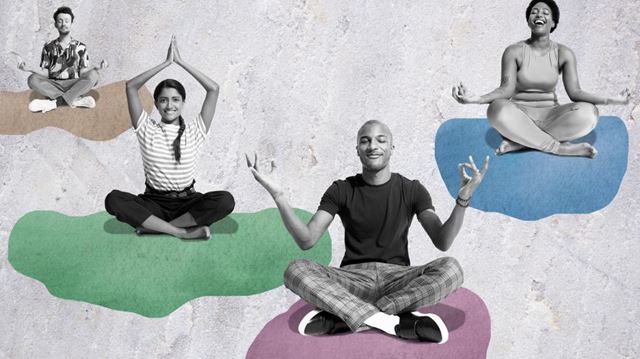
At this time of year, when we’re all more susceptible to feeling low, it’s especially beneficial to focus on your wellness. Read on to find out why it’s so much more than a buzzword, and how to tune in to your own mental health
Help’... it’s such an easy word and yet it can be one of the hardest to say. That was my experience when I was struggling with my mental health and, as a result of not getting the help I so desperately needed sooner, suffered an emotional breakdown. Had I recognised how I was feeling and behaving in the months leading up to what I now affectionately call Meltdown Day, I don’t think I’d have had the big mental crash that I did.
Your expert
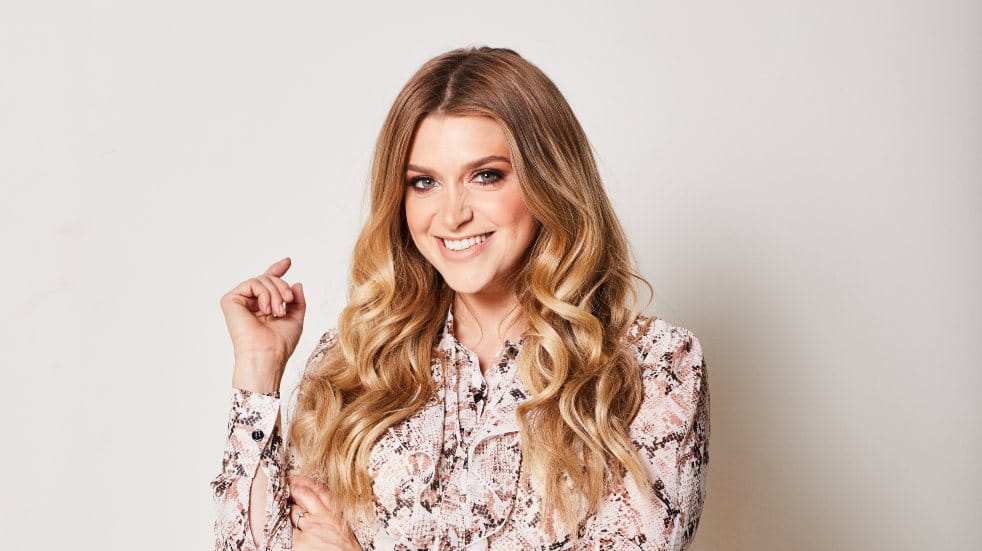
As well as her bestselling books and work as a counsellor and life coach, Anna Williamson brings her personal experience to bear on this vital topic.
So why didn’t I? Perhaps it was because mental health is sometimes regarded as an awkward topic. We’ve come on in leaps and bounds over the last few years in terms of destigmatising what is, after all, something that any one of us can go through – but even just 15 years ago, when I was in my mid-twenties and working in a fast-paced, exciting environment, the thought of being mentally unwell was simply too loaded to share with anyone else.
Instead, I did what many have done before me, and still do: I kept my thoughts and feelings to myself and suffered in silence, hoping that the dark thoughts, sleepless nights, feeling of being detached from my body, inner loneliness – and all the other signs that my mental health was fraying – would go away and leave me feeling like ‘me’ again.
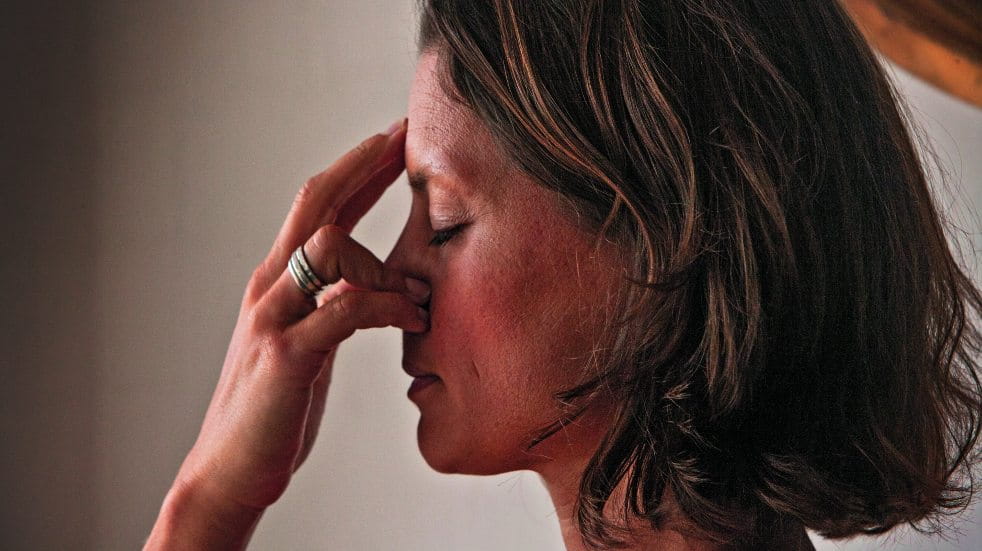
I now realise that those gloomy months leading up to the day I finally asked for help – months spent suffering in silence and keeping a lid on the pressure cooker that was my very fractured mental health – were only exacerbating the problem. Of course, I didn’t recognise that at the time. Often when we’re in the eye of the storm, it’s very difficult to get a healthy perspective on what we could, and really should, do for the better.
All this, coupled with the fact that mental health just wasn’t talked about then in the more optimistic and positive tones it is now, stopped me from opening up to anybody close to me for fear of being deemed a bit unstable or – my ultimate fear – losing my job.
No place for judgement

I’m pleased to say that none of these fears ever came to fruition. In fact, those closest to me couldn’t have been more concerned, kind and compassionate when I finally found the courage to ask for help on that fateful day. And that’s often the case. An avoidance of talking about mental illness is generally deeply rooted in embarrassment, a big dollop of stigma and a lack of knowledge. But once you open your eyes, ears and mind to mental wellbeing, which is really just about making sure that you feel ok, you realise there’s nothing to fear; no place for judgement. After all, mental illness doesn’t discriminate. For example, I had a happy childhood and hadn’t had any particular trauma in my life; I just came unstuck. According to the mental health charity Mind, every year one in four people in England will experience a mental health issue of some kind.
Access all areas
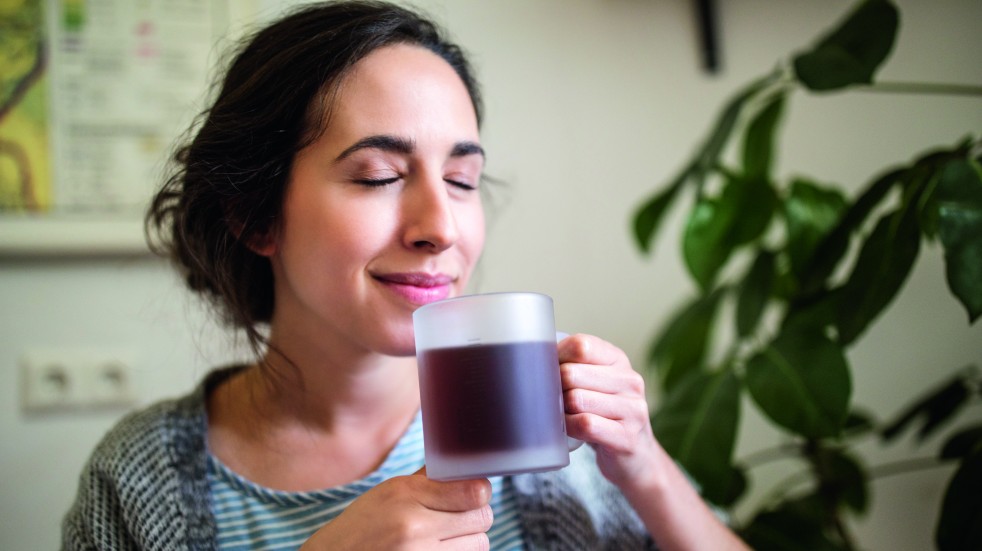
Sarah found that a shift in priorities helped when things got too much.
“For years, I said yes to almost anything and everything: people-pleasing was a hard habit for me to change. I recognised that I never felt truly content or really happy, even though I was constantly busy and surrounded by lots of friends and family. But it turns out that you can be too available, to the detriment of your mental health, as I found out a few years ago.
“I wanted to help my daughter with her new baby, but I also had a very demanding job, not to mention a household to run. I realised that by trying to do everything, I was putting my own needs very much at the bottom of the list of priorities – and the toll started to show.
“I felt very irritable, tearful, and would have anxiety flutters in my chest most days. I felt like I could never truly complete any task and, in the process, I was making mistakes and annoying people as I was becoming unreliable. Something had to change.
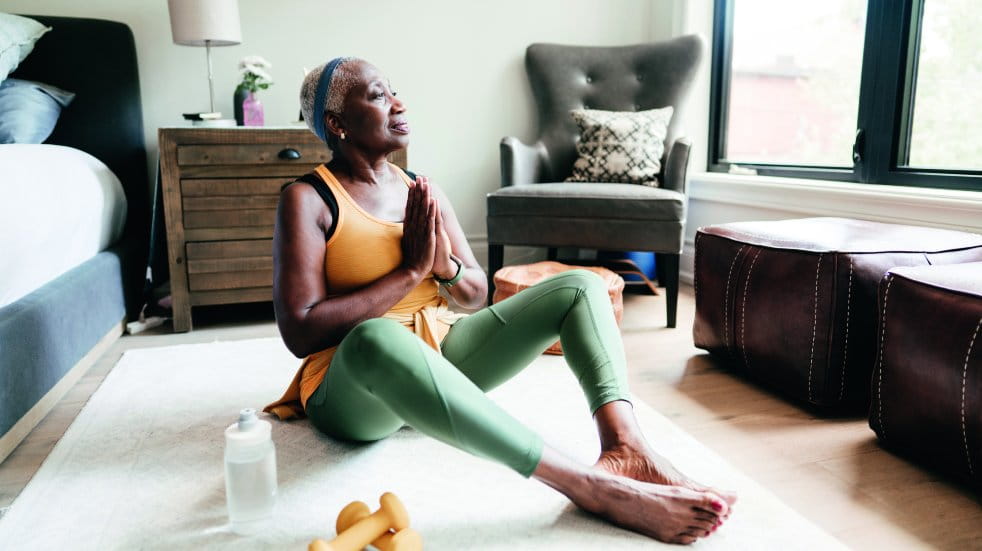
Thankfully, being able to take a bit of a pause and a step back due to the pandemic made me realise how much I’d neglected my own physical, mental and emotional health. As horrible as the lockdowns were, it gave me a chance to reassess what I wanted out of life, who and what was important, and what made me happy.
“As a result, I reorganised my life – I now work part time and I’ve taken up yoga, doing it twice a week at my local gym. “I never realised how much of a difference actually paying attention to my mental health needs could make. Just by making a few tweaks and changes, and as a result of learning the importance of saying ‘no’ sometimes, for my own wellbeing, I feel so much happier and more positive – and the anxiety flutters have stopped.”
Now’s a good time to act
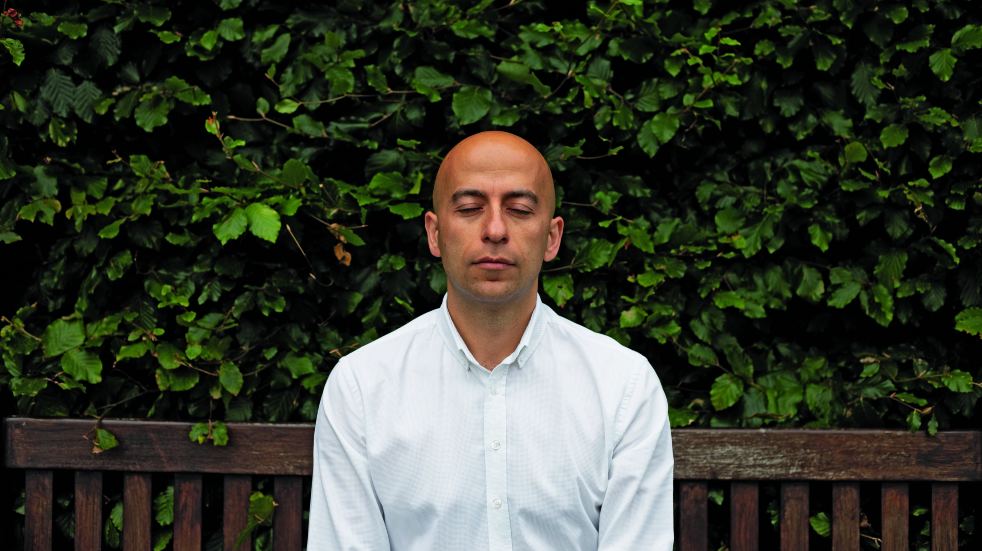
The period following Christmas and New Year is often a time when people feel a bit flat – the excitement of the festive season has given way to long dark days, chilly weather and, often, to bank accounts drained by festive spending. It’s logical that our mental health is susceptible to taking a bit of a nosedive during the colder, darker months – when the natural mood-boosting vitamin D we derive from sunlight is in shorter supply – and that’s why it’s worth shining a spotlight on it now.
The good news is that there’s plenty we can do to support our own mental and emotional wellness. Not only that, but it’s important to make this a priority. We don’t, as a rule, question the need to keep a check on our physical health – we try to eat the right things, go to the doctor if we’re unwell, take some exercise.
Our mental health is the important ‘other half’ of our make-up, so it stands to reason that we should give it the same attention. Taking care of all of your health is essential to enjoy a happy and fulfilled life. Since Meltdown Day, I’ve learnt that nurturing our wellbeing is as simple as tuning in to our current state of mind and asking ourselves, honestly, how we’re feeling. Implementing helpful practices such as mindfulness helps us to identify and offload any inner conflict or turmoil; to vocalise and work through any stresses and worries. If you’re aware, for example, that your stress levels are high or that you’re feeling anxious, you can then take steps to look after yourself, whether that’s simply saying ‘no’ to requests that feel like too much, or seeking help from the medical profession. Identifying early on that something’s a little out of kilter can make it much easier to deal with.
The process of looking after our wellness can help us to grow on a personal level, which can spark new ideas, opportunities and interests, motivate and excite, and promote a happy, fulfilled and contented life. If you join a class to learn more about something like mindfulness, then it can also be an opportunity to meet people and create camaraderie along the way.
For all of these reasons and more, it’s well worth embracing mental wellbeing and recognising that, as an intrinsic and perfectly normal part of you, it’s deserving of your time and effort.
360 degrees of mindfulness
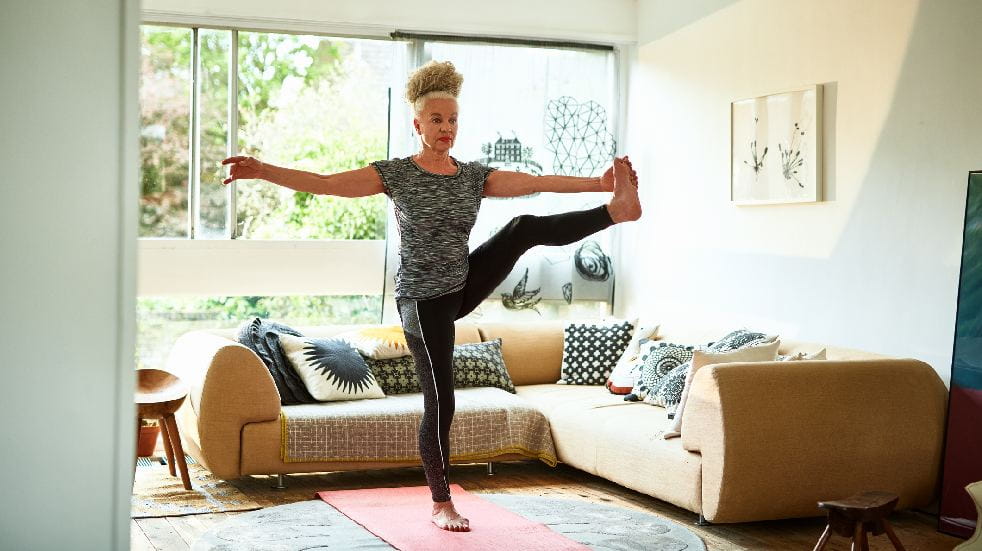
Mindfulness is one of those buzzwords that may be difficult to wrap your head around if you haven’t practised it before, but luckily there’s plenty of information and many good tools to help you introduce this into your life. Apps are a particularly useful gateway, providing access to guided meditations, general wellbeing tips and much more. Calm and Headspace both provide all of this, and are among my favourites. While they’re subscription apps, they offer a free trial so you can try them out before committing to a payment. Portal is also great – it uses immersive soundscapes and visuals to bring nature into your day, providing virtual escapes to beautiful locations.
Podcasts are a terrific way of listening to information – and of taking some quiet time for yourself. The medium is very intimate, which makes it a really good way to listen to mental health podcasts. Among my favourites are Mindful, which is a good one to introduce you to the subject; TED radio hour, which provides access to a wide range of fascinating ideas and speakers; and Sleep and Relax ASMR, a weekly sound experience designed to do what it says on the tin.
Reading offers the very definition of ‘me time’ and there are some great mindfulness books out there. A Mindfulness Guide for Survival by Ruby Wax, The Power of Now by Eckhart Tolle and Mindfulness for Dummies are all worth a look.
4 easy ways to check in with yourself
Take a moment to tune in to your current state of mind from time to time
Ask yourself how you are It might sound a bit silly, but it’s really not. We don’t think twice about asking our friends or loved ones how they are, with genuine concern, so treat yourself with the same level of kindness and take time to tune in to how you’re feeling. Be curious about yourself and identify what and how you’re feeling, then let yourself acknowledge and accept it.
Embrace your senses We can often find an excuse for not taking a pause – after all, life can be fast paced and all consuming – but take five minutes each day to just sit, breathe, and run through each of your five senses. Notice what you see, smell, touch, hear and feel. It’s a useful, quick and simple technique to pause and reset yourself physically and mentally.
Breathe When we’re feeling stressed or anxious, our breathing tends to be shallow, which can make us feel dizzy and lethargic, not to mention jittery or panicky. The 7/11 breathing technique is a favourite of mine: breathe in through your nose for seven seconds, out through your mouth for 11 seconds, and repeat five times. This will help keep you calm and focused.
Try mindfulness Because it’s simply about tuning into the present moment, this is a terrific way to practise self-awareness. Just sitting somewhere quiet with your eyes closed, and noticing all your feelings and sensations, is enough to help you feel grounded and more in the moment. It’s a particularly good technique to use when you’re feeling stressed.
Do more with Boundless
Save 15% on outdoor kit with Cotswold Outdoor Enjoying a stroll in the countryside can help with wellness, filling your senses with relaxing sights and sounds while you benefit from some gentle exercise. Make sure you have the right outdoor gear with Cotswold Outdoor. Visit boundless.co.uk/cotswoldod or call 01666 718576 and quote ‘AF-BOUNDLESS-M2’.
Save up to 20% on spa and wellness breaks Your Boundless membership gives you access to a saving of 20% on hundreds of rejuvenating spa experiences, beauty treatments and luxury spa breaks across the UK with Virgin Experience Days (boundless.co.uk/vedspa) – and up to 20% on West Cliff Hotel’s popular spa breaks (bournemouthwestcliffhotel.co.uk).
Join Anna for a free live event Anna Williamson will be hosting a webinar on 27 January, when her experience as a bestselling author, counsellor, life coach and broadcaster will all come together with insights and tips to help you look after your own wellbeing. To book your place, go to boundless.co.uk/jfwellness.




